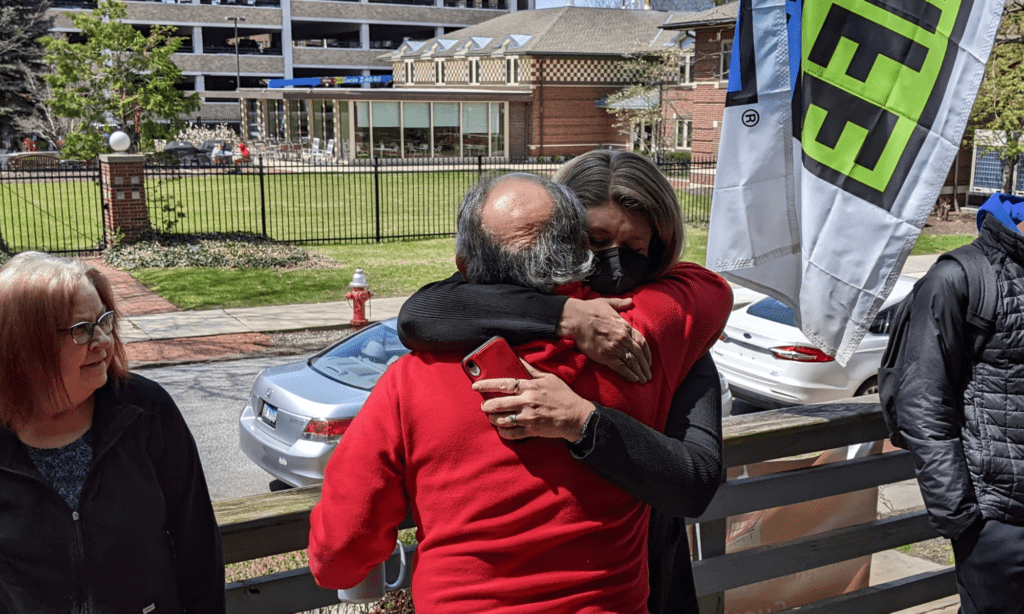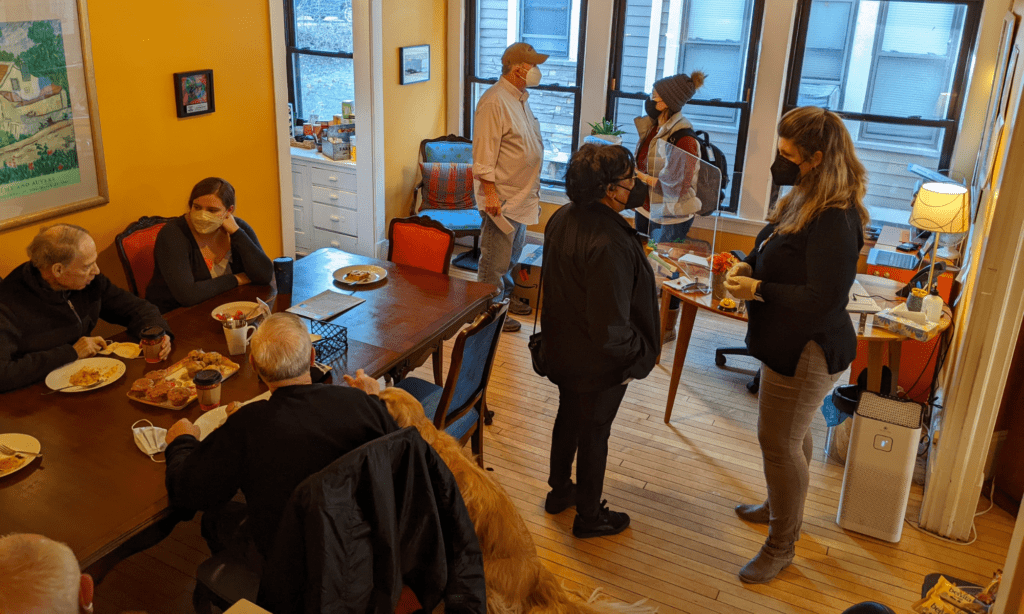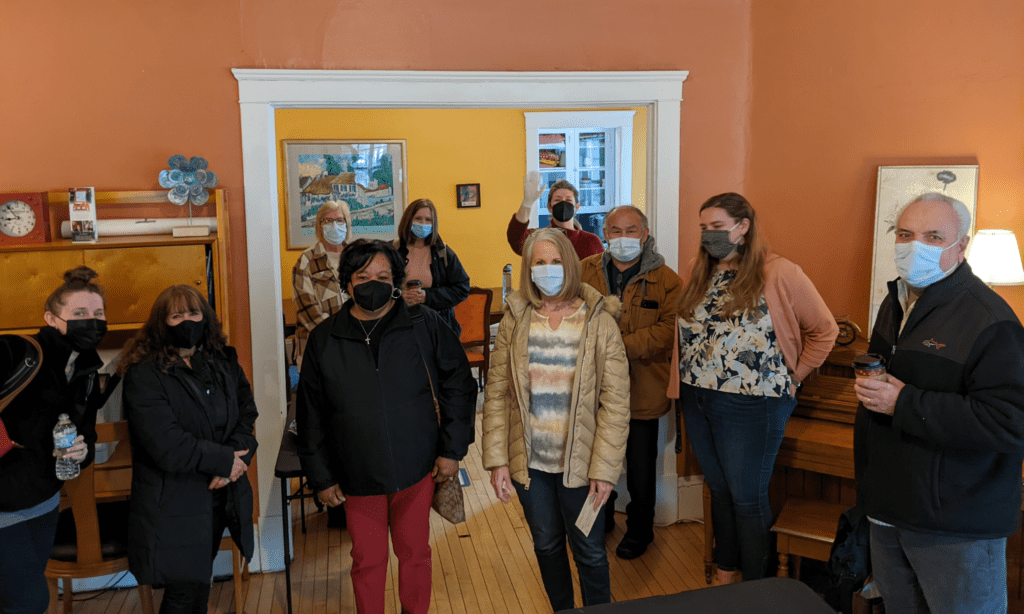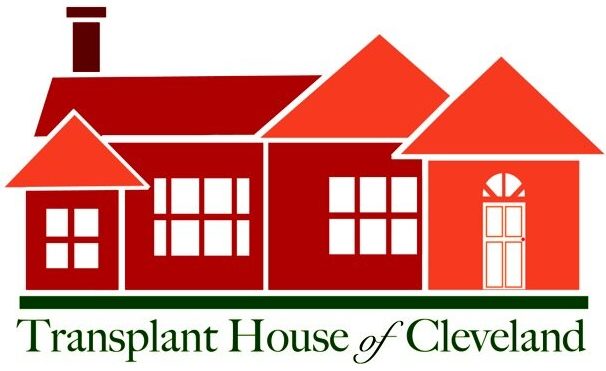This is the first part of a two-part series about Transplant House’s social work staff and programming.
*To protect their privacy, the names of the guests referred to in this piece are pseudonyms.

As a clinical transplant social worker with 15 years of experience at the Cleveland Clinic, Annette Humberson is acutely aware of the needs of transplant recipients and their caregivers. And she knows, too, what it is hospitals are looking for from patients and caregivers during the transplant evaluation process. Since March of 2020, Annette has been Transplant House of Cleveland’s Social Work Manager. The start of the pandemic disrupted the initial vision she and Elaine Turley, Transplant House’s Executive Director, had for social work programming, with the necessary shift away from group gatherings presenting both new challenges and new opportunities.
“Annette just naturally gravitated toward one-on-one contact with guests,” Elaine explains. “And we’re seeing that is a really, really good place for her skills, because she’s digging into finding financial resources for guests. Nobody previous to her here had the knowledge base to do that.”
Having a staff member on-site able to direct guests to sources of financial support, whether through grants, Transplant House’s own Family Assistance Fund, or by providing guests with the tools to undertake fundraising on their own, addresses one of the most immediate and obvious needs for many families: the financial strain of transplantation.
“Imagine: most people just manage their home expenses, not a whole separate residence that fortunately does not include utility costs and all that, but still it’s basically added rent,” Annette says. “And for some people, the cost of staying here for a few weeks or a month is more than their mortgage or rent at home. So that’s a huge need.”
In the case of Charlotte, an intestinal transplant recipient, and her caregiver Eric the material needs also included assistance with groceries and additional changes of clothing after being life flighted to Cleveland from nearly 1,000 miles away.
“They had nothing when they got here,” Annette says, “they had no car, they had no food. Neither of them had any income. In the beginning she was getting paid for some time off, but then it stopped.”
Annette helped Eric to get settled in, to get groceries and other necessities, and, as their stay lengthened, she directed them both to financial resources to supplement their lost income. Annette provided Eric and Charlotte with guidance for organizing fundraisers back home in North Dakota, how to draw upon family support, and made applications on their behalf to charitable foundations to help with their costs. For Eric and Charlotte, like so many other guest families, the world of fundraising and grants was an unfamiliar one and Annette helped them to navigate it.
But Annette is also attuned to those needs beyond financial ones – especially emotional ones. According to Claire Gerchman, Transplant House’s Social Work Intern, all of Transplant House’s social work programming, whether one-on-one or in a group setting, is thoughtfully created to ensure these needs are being supported too.
“Annette’s very intentional in how she’s approached the programming here. It’s about creating and holding spaces,” Claire says. “So sometimes that space is for connection. And then there’s also that holding space for grief. And for really, really difficult and complex emotions.”

Regular group gatherings – such as the Second Chance at Life AA meetings for Transplant candidates and recipients, Tuesday Morning Breakfasts, and weekly community dinners – create opportunities for one-on-one interactions between Transplant House’s social work staff and guests.
It was because of a breakfast that Rob, caregiver for his wife who is a lung recipient, felt comfortable enough to approach Annette with a question about financial help. “He came up to me in the kitchen a little hesitantly,” Annette recalls, “and said quietly ‘my wife told me to talk to you about our finances.’” Rob came to every Tuesday morning breakfast thereafter and Annette worked with him to claim the lodging benefits from his health insurance provider. After hours of completing forms and calling their insurance, Rob and his wife ultimately were reimbursed for $6,000. (Annette also helped Rob, who was preparing to retire, to apply for Social Security retirement benefits and Medicare.) Annette says she has worked with many guests who don’t know that their insurance may have a lodging benefit to receive reimbursements.
These group gatherings also make possible peer-to-peer connections and support between guests in a way that is mindful of how sometimes peer-to-peer support can be hurtful or disappointing.
“If you’re that patient or caregiver who’s waiting for transplant and the rest of the people in your peer group have gotten theirs and gone home or have a different way of coping that made you question your own way of coping, you need someone to mediate the peer-to-peer support,” Elaine says.
All these interactions are meant to tap into what Annette refers to as each guest’s particular “love language.” The concept, Annette says, helps her to think about what types of programming or resources will help each guest feel cared for.
For some guests, such as John, whose wife is listed for a heart, this meant having the opportunity to leave his apartment and talk with others at the Tuesday morning breakfasts. Francine, caregiver to her husband who is a kidney recipient, went on walks around the neighborhood with Claire, Annette, and sometimes Transplant House’s therapy dog Benson, too. Other guests, such as Cynthia (caregiver to her husband, a liver recipient, and her daughter who was a living donor), need affirmation that the exhaustion they are feeling is understandable, that 12-hour-a-day visits each day to their loved one in the hospital are exhausting, and that it is ok to shorten them.
“Sometimes it’s just validating, it’s giving them permission for what they need to do,” Annette clarifies. “The caregivers, because the focus is so much on their loved one’s health situation, don’t even know what they need, they don’t know what part of that struggle will be hard for them.”
For Cynthia, conversations with Annette and with other guests helped her to establish a more routine rhythm of day-to-day life. Instead of a 9AM to 9PM day at the hospital, she visits her husband, but also makes time for herself: to run errands, have lunch, or read a book. For John and Francine, too, Transplant House’s social work programming provided a sense of calm and pause – a way to slow down and step back for a few moments from the stressful realities of the hospital and of caring for a loved one on their transplant journey.
And for others, such as David, who is the primary caregiver for his wife (a heart recipient), supportive care means not only creating a space where guests feel safe to express the vulnerability and the fears that they feel as a caregiver or a recipient, but also knowing each guest well enough to recognize when those fears and vulnerabilities are being articulated.
“He’s experienced some awful things in his life,” Annette explains, “and he has a difficult time expressing what he’s really feeling. So, he might come in and say that the neighbor upstairs is making too much noise – and maybe they were – but he’s also afraid his wife’s not having a good day.”
“You don’t pick up on those things in group settings as much,” Claire adds. “You get to know that by having multiple one- or two-hour long conversations. And meeting their families. I think that’s another unique thing here. We meet different family members as they come in and out and interact with us. And that gives you a more complete picture of somebody’s experience.”
After numerous interactions with Annette and Claire, David has learned to ask for help and they, in turn, have learned how to best support him.
This deeper knowledge of, and care for, guests on an individual basis allows Annette and Claire to extend support to those guests who may struggle to vocalize their need for help, or the fears they are feeling about their loved one’s health. As Annette explains, guests at Transplant House are typically staying here at some major point in the transplant journey, whether it is for evaluation, waiting for transplant, when the transplant happens, or post-transplant testing and health management. Some guests know what they need and reach out on their own initiative. But, as Annette says, that self-advocacy is unusual. More often, she and Claire are reaching out to guests to let them know of the support resources available to them. And specific needs can vary greatly, depending on where someone is at in the transplant process.
For Elaine, the addition of a dedicated social worker to Transplant House’s staff allows for a greater level of care – one that addresses the needs of the whole person – and enhances the mission to provide a welcoming, home-like atmosphere that provides feelings of community and safety (in addition to resources) that ease the difficult journey of recipients and caregivers.
“People are leaving here better than they would’ve been,” Elaine says. “And to know that our guests are well-cared for by somebody whose passion in life is doing just that on a deep level is wonderful.”

